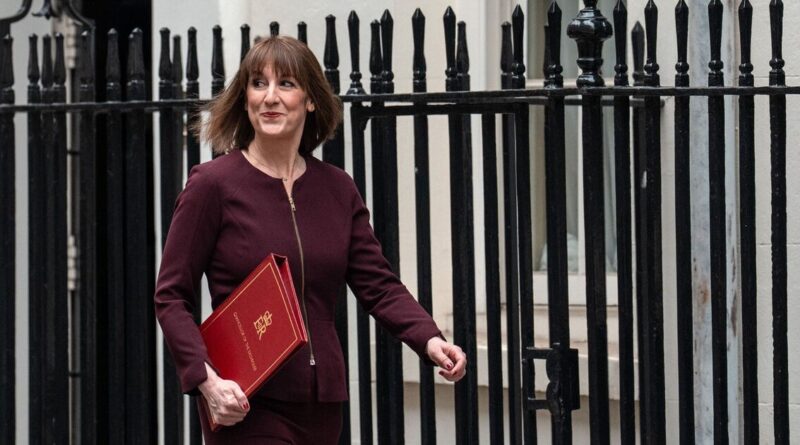Every DWP and benefit change announced by Rachel Reeves in Spring Statement | Personal Finance | Finance
Rachel Reeves has announced a series of spending cuts to balance the books without raising taxes in her Spring Statement today. The Chancellor used the statement to put a further squeeze on the welfare budget, building on cuts to the disability and incapacity bill set out earlier this month.
She claimed that Labour inherited a “broken” welfare system from the Tories as “more than 1,000 people” qualify for Personal Independence Payments (PIP) every day, while one in eight young people are not in employment, education or training. The Chancellor told the House of Commons the package of cuts is now estimated to save £4.8 billion in the welfare budget – slightly short of the £5 billion originally envisaged by ministers.
Reeves was forced to set out measures totalling around £14 billion to ensure she met her “non-negotiable” goal of balancing day-to-day spending against tax receipts, rather than borrowing, and in her October budget she set out plans which met that goal with £9.9 billion to spare in 2029/30.
But the updated forecast from the Office for Budget Responsibility (OBR) indicated she would have missed the target by £4.1 billion without taking action to restore the £9.9 billion of headroom.
Listed below are all the Department for Work and Pension (DWP) and benefit changes announced by the Chancellor in today’s Spring Statement:
Universal Credit standard allowance
The Universal Credit standard allowance will increase from £92 per week in 2025-26, to £106 per week by 2029-30.
Universal Credit health element
The Universal Credit health element will be cut by 50% and will be frozen for new claimants. It’s designed to provide additional financial support for people with health conditions or disabilities and replaced the old “Limited Capability for Work and Work-Related Activity” (LCWRA) element.
It is awarded based on receipt of Personal Independence Payment (PIP) and was introduced by the previous government. A 2023 White Paper explains: “The new UC health element will be awarded to people who are receiving the UC standard allowance and any PIP element. In effect PIP will therefore act as a passporting benefit for this new UC health element.”
It means that if someone receives PIP, then they will automatically qualify for the health element as part of their Universal Credit, acting as a “passport” to this extra support.
£500 per year boost for UK households
Reeves said the OBR expects people to be £500 per year better off at the end of the decade compared to previous forecasts, taking into account inflation.
She told the House of Commons: “So I am pleased that the OBR confirm today that Real Household Disposable Income will now grow this year at almost twice the rate expected in the autumn.
“And after taking into account inflation the OBR say today that people will be on average over £500 a year better off under this government. That will mean more money in the pockets of working people. Higher living standards.”
Tax evasion
Reeves announced steps to crack down on tax evasion which she said would raise £6.5 billion per year by the end of the forecast.
She said: “Today, I go further, continuing our investment in cutting-edge technology, investing in the HMRC’s capacity to crack down on tax avoidance and setting out plans to increase the number of tax fraudsters charged every year by 20%.
“These changes raise a further £1 billion taking the total revenue raised from reducing tax evasion under this government to £7.5 billion, figures verified by the Office for Budget Responsibility.”
Back to work help
As part of reforms to the welfare system, Reeves said the Government will support more people back into work, “lifting them out of poverty”, with £1 billion invested in employment support and £400m to support the Department for Work and Pensions and our Job Centres to deliver these changes “effectively and fairly.”




